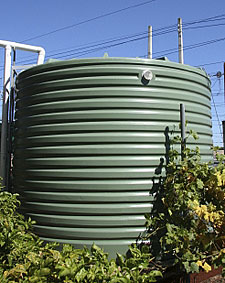 Dr Ann Young, Chair of the National Environment Working Group for the Anglican Church, says that, while the Federal budget's climate change allowances are a positive step, its environmental focus is "too narrow".
Dr Ann Young, Chair of the National Environment Working Group for the Anglican Church, says that, while the Federal budget's climate change allowances are a positive step, its environmental focus is "too narrow".
"The budget is almost entirely dominated by climate change and that means a whole lot of other major issues get left aside," Dr Young says.
"The climate change debate addresses energy supply and water supply, which are important issues, but doesn't address waste management or land management and those are big environmental issues."
However Dr Young says a key strength of the budget were initiatives such as rebates for homeowners Australia-wide of up to $8,000 for the installation of solar panels, which, according to Treasurer Peter Costello, cost an average of $14,000. Grants of up to $12,000 were offered to schools and community buildings.
Funding was also directed towards the installation of water tanks in schools and community organisations.
"The fact that solar panels have been singled out shows the impetus towards energy management is a major focus of environmental concern," says Dr Young.
Rebates or other financial incentives encourage people to make good environmental choices, she adds.
"There is scope for individual action and I think that is important," she says.
"Christians understand that taking individual action to deal with the problem is a good way of going about things " you don't have to save the world in one go."
Another positive step was the inclusion of a national plan for water security (which allocates money towards increasing the efficiency of water use in irrigation and addressing the over-allocation of water), Dr Young says.
"I think water management is the key " the fact that we've been in a drought has emphasised that.
"I would like to see governments enforcing more reuse of water " for us to trap water, use it once and throw it away is ridiculous."
Other initiatives included making set-up costs for qualifying carbon sink forests tax-deductible for five years.
Dr Young says planting forests such as these is a "kneejerk reaction". They are often made up of softwood trees, such as pines, and are taking over environmentally valuable farmland that can store carbon in soil and in crops or pasture.
"The uptake of carbon dioxide will not be balanced by the detrimental effects of these widespread forests," she says.




















